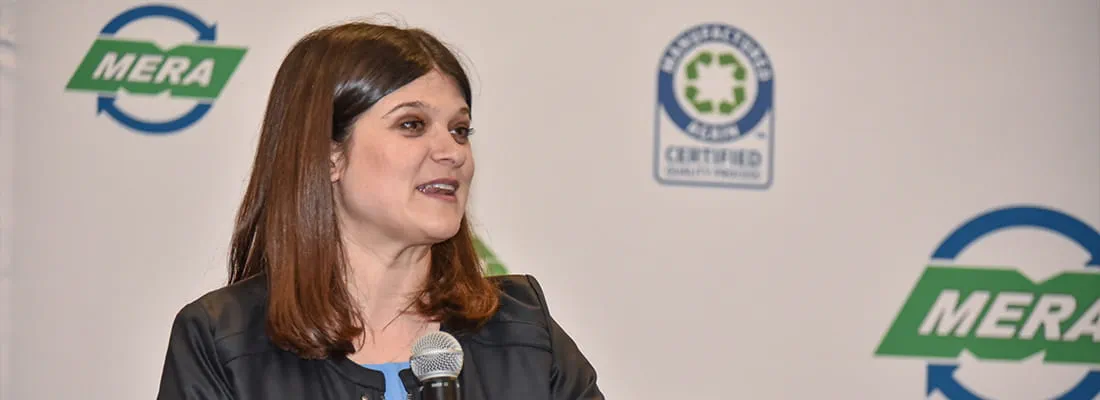Haley Stevens, member of the House of Representatives, is on reman’s side: Denise L. Rondini, Rematec News US correspondent, reports from MERA’s latest conference at the Automotive Hall of Fame in Dearborn, Michigan…
Urging attendees to help put the focus on the manufacturing part of remanufacturing, John Chalifoux, president and COO of MERA kicked off the association’s Sustainable Manufacturing Conference at the Automotive Hall of Fame in Dearborn, Michigan, US. This year’s event – which had the theme of ‘Excellence in Manufacturing’ - began and ended with town hall sessions. The first one, dedicated to automotive reman, featured GM Customer Care and Aftersales, while the commercial vehicle town hall featured Daimler Trucks North America.
Tod Stump, manager, global remanufacturing, GM Customer Care and Aftersales (CCA), sees huge opportunities for reman as the auto industry moves to autonomous technology and alternative forms of vehicle propulsion. However, he was quick to say that “internal combustion engines and transmissions are going to be around for a long time”. Stump also said: “Sustainability is here to stay; it is not just a buzzword. It is everywhere now.” Sustainability has three pillars, he believes - economic, environmental and societal. Remanufacturing is a part of GM’s commitment to sustainability because it saves money, reuses material and helps the planet, Stump explained.
CCA is having an impact throughout the vehicle’s life cycle and Stump said it is not too early to talk about reman during the new product concept and design stages. “We know when we launch a new transmission that we will be remanufacturing it at some point. There are all kinds of things that can be done upfront to aid remanufacturing.” He added that GM tries to have the design for remanufacturing discussion up front at the same time it discusses things like price and delivery with its suppliers. GM prefers its suppliers do the remanufacturing since they own the intellectual property (IP) and have the necessary test equipment – but if a supplier does not want to do the reman, it has to give up the IP to GM.
Closing his remarks, Stump reiterated that remanufacturing’s future is bright - with opportunities for hybrid batteries, advanced propulsion technology, control modules, infotainment/electronics and headlamp technology. “Sustainability is here to stay and remanufacturing is large and growing.”
Building on the sustainability theme, in the conference’s closing session, Brian Lewallen, president, aftermarket solutions, Daimler Trucks North America, said: “We take stewardship seriously. We want to help elevate our business and the entire industry.”
He explained that the company “has been focused internally on products, but now realised that we have to focus on customers and listen to them more”.
To be more responsive to customers, Daimler combined Detroit Reman and Alliance Parts into DTNA Aftermarket Solutions. Lewallen said: “As things are changing in the market you need to look at yourself internally and look beyond the way you have always done things to find new ways to operate.”
Brad Williamson, director of aftermarket solutions sales and marketing for Daimler Trucks North America, said: “For reman that means we look at where we can reman and then sell. How do we take care of the entire customer experience from ‘I need a truck’ to ‘I am going to sell a truck’?” He added: “The world is changing whether you want it to or not.” One of the biggest changes is in the connected, autonomous, shared and electric (CASE) area: “There are 200,000 trucks that are connected, but how do you use that connectivity?”
Lewallen and Williamson talked about some of the potential market disrupters they see, including ‘core-less’ remanufacturing, knock-off components and pricing transparency. Williamson insisted that the industry “has to simplify core returns - I have never heard anyone say core is easy”.






